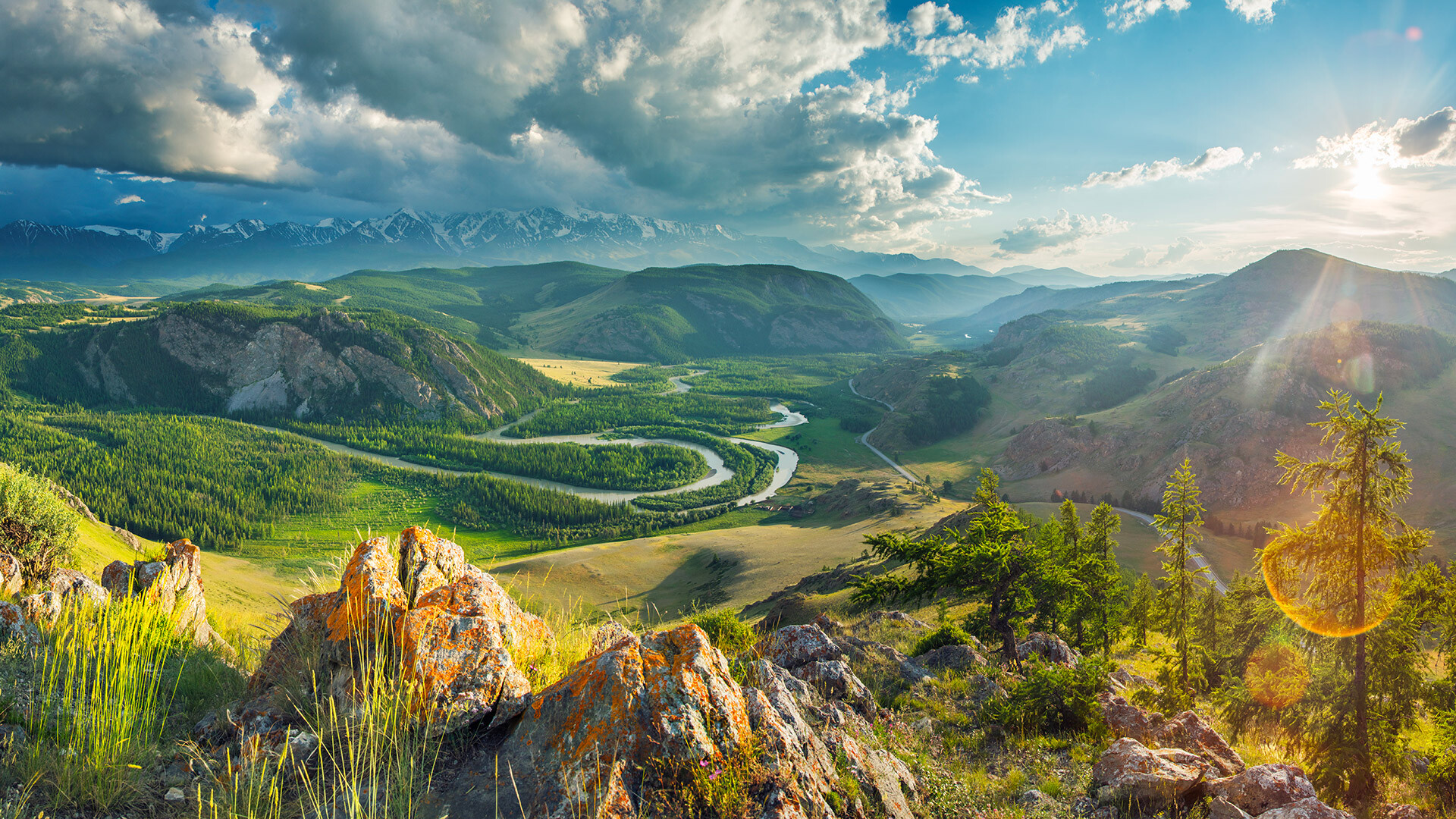
Altai mountains.
Valerii Molodavkin/Getty Images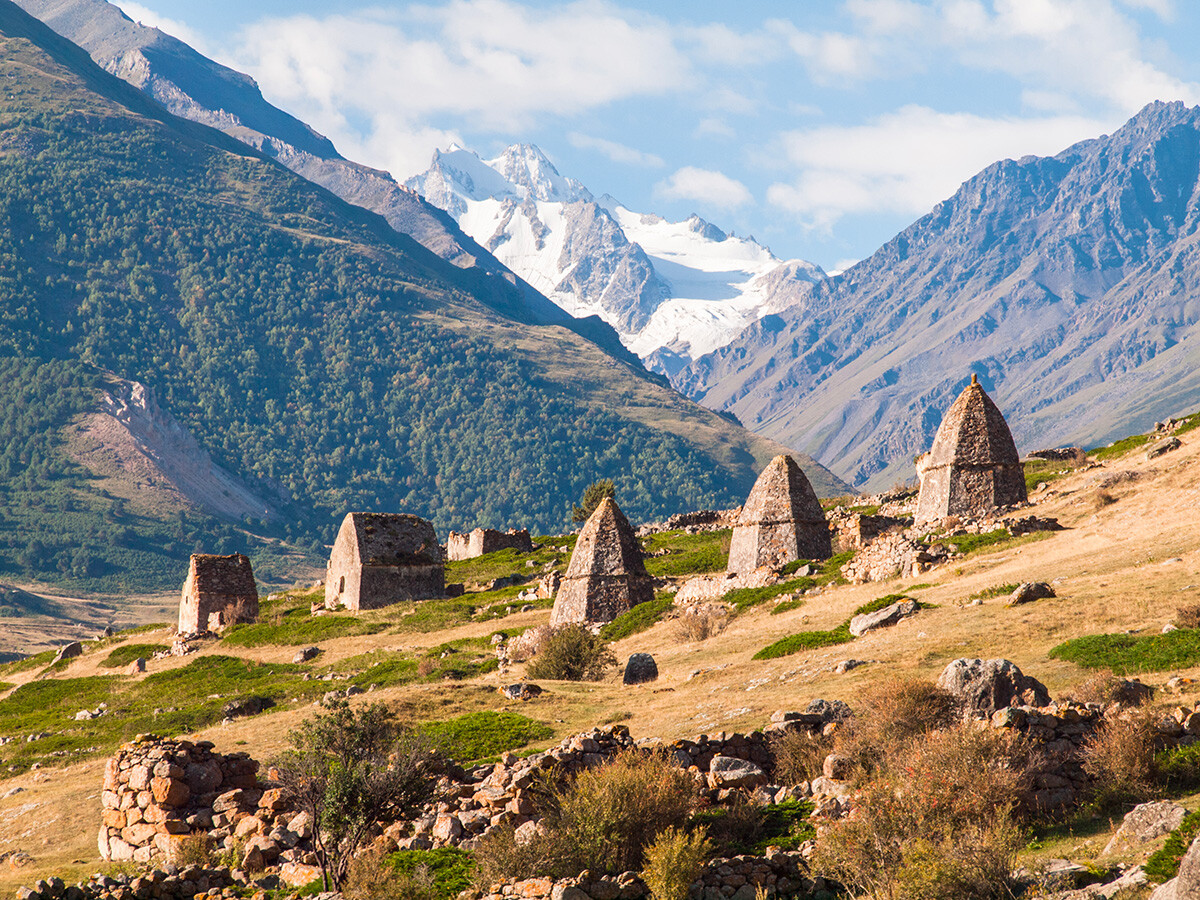
The youngest mountains in Russia (and some of the youngest in the world) are in the Caucasus - they were formed 28 million years ago. In terms of mountains, they have a lot of room to grow. And by the way, they really do grow - by several millimeters per year.
Apart from Russia, the Caucasus Mountains are located on the territories of Georgia, South Ossetia, Abkhazia, Armenia and Azerbaijan. In the northern part of the Caucasus (Russian) contains the most of the glaciers, as well as the highest point in Europe - Mount Elbrus (5,642 meters). Other highest mountains in Russia are also located there - Dykhtau (5,204 m), Koshtan-Tau (5,152 m), Pushkin Peak (5,100 m).
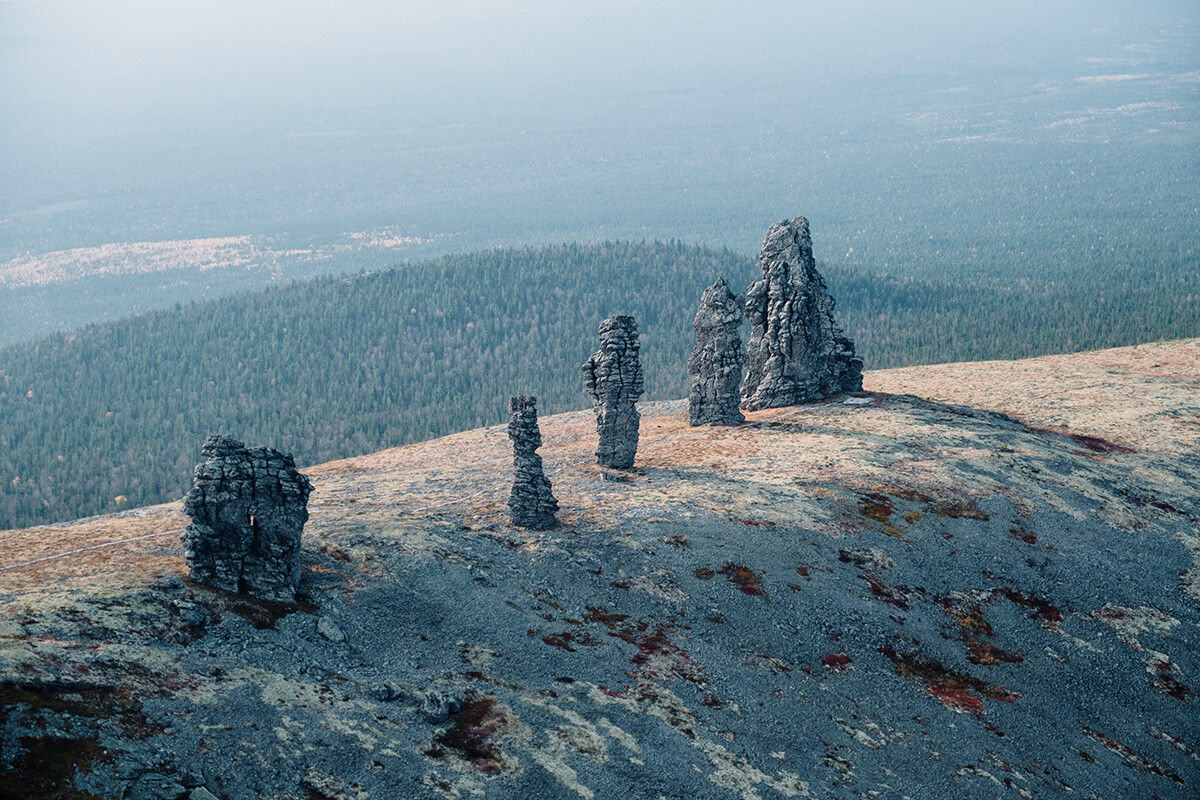
The Ural Mountains are not very high (the highest point is Mount Narodnaya, 1,895 m), but they are among the oldest on the planet - they are about 350 million years old!
In the Southern Urals, there is Mount Karandash, which is many times older than the mountain range. On its slopes there is a rock called ‘israndite’, a remnant of a supercontinent that existed in the Archean era two billion years ago. There is such an abundance of copper ore, minerals and gemstones in the Urals that these mountains are often referred to as the country's treasury.
The Ural Mountains cross Russia from north to south, through nine regions, and the Novaya Zemlya archipelago in the Arctic Ocean is considered part of the range. The Ural Mountains are also the conventional physical border between Europe and Asia.
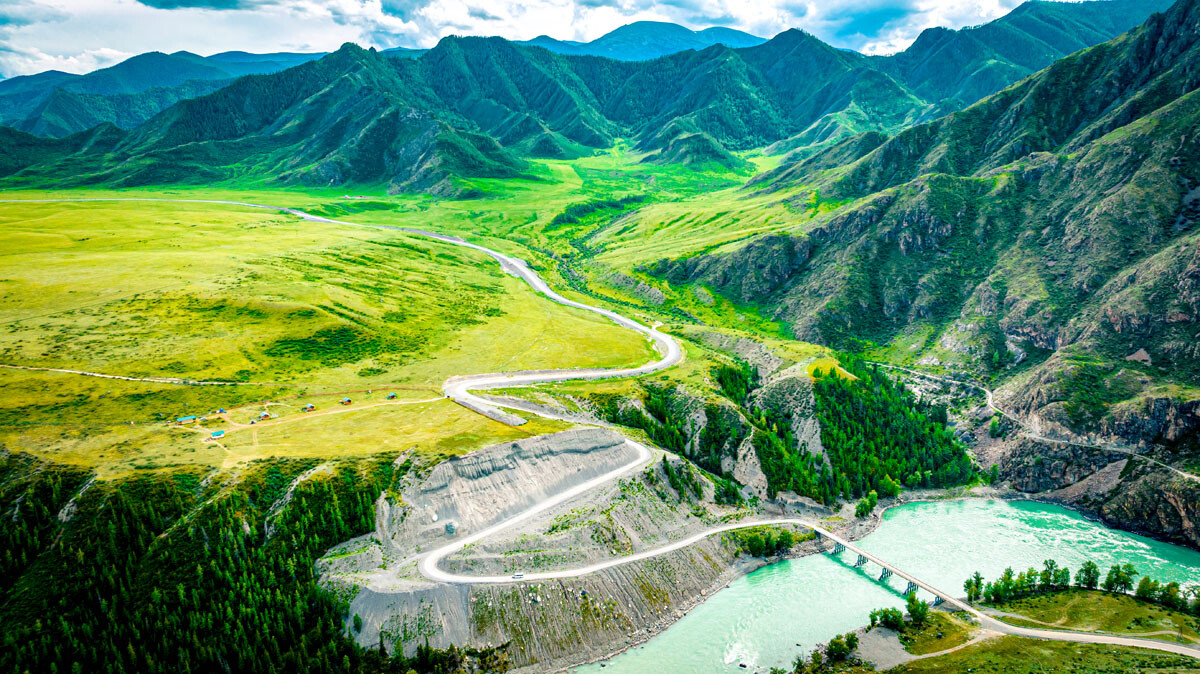
The Altai Mountains are one of the most popular destinations for tourism in Russia. One of the most picturesque roads in the country, the Chuisky tract, passes there and the high-mountainous Katun River, which changes color from azure to gray. It is also home to Mount Belukha, a sacred place for the Altai people and the highest point (4,506 meters) of this mountain range.
The Altai Mountains can be found in Southern Siberia and Central Asia, in Russia, Kazakhstan, Mongolia and China.
Three of their most picturesque sections are included in the UNESCO World Heritage List under the name ‘Golden Mountains of Altai’.
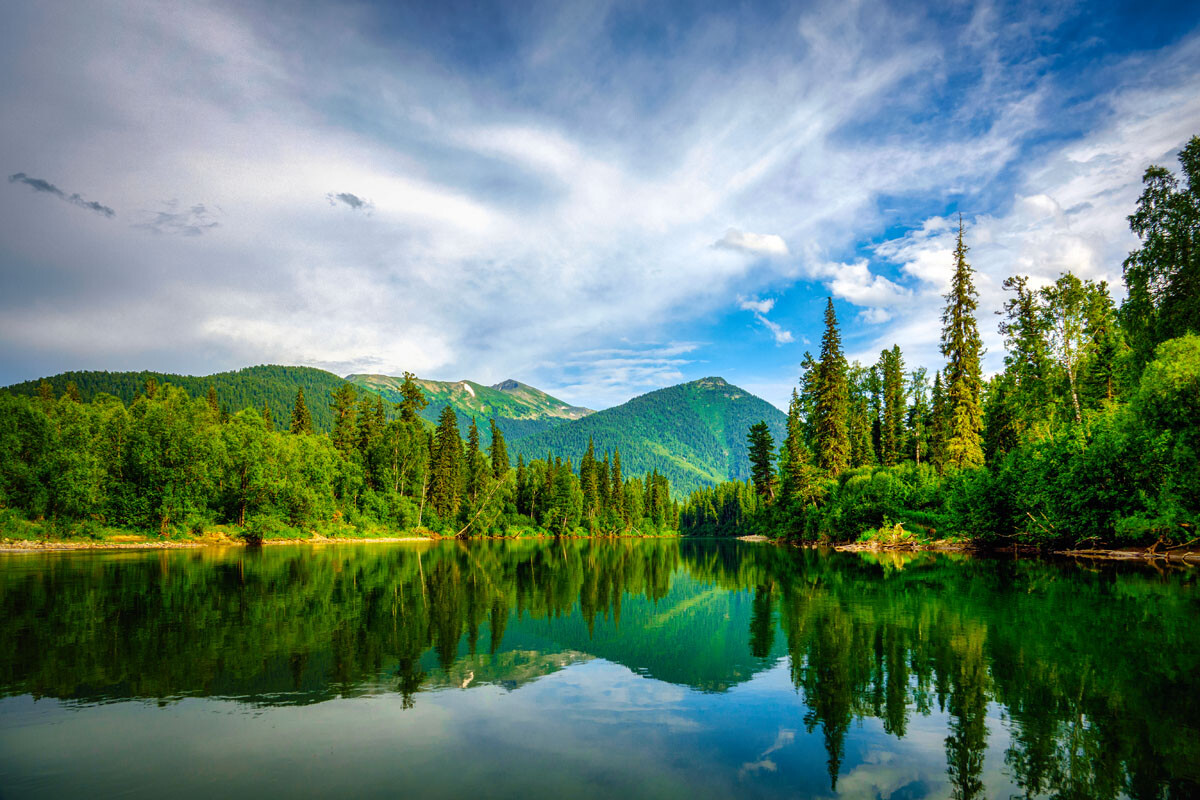
The Altai Mountains in Southern Siberia are bordered by another huge mountain range, the Sayan Mountains, consisting of the Western and Eastern Sayan Mountains. They are almost at right angles to each other. Almost all glaciers are located in the Eastern Sayans. Their highest point is Mount Kyzyl Taina (3,121 m).
They run through Krasnoyarsk Territory, Khakassia, Tyva, Buryatia, Irkutsk Region, as well as northern Mongolia.
The protected part of the Eastern Sayan Mountains is located on the outskirts of the city of Krasnoyarsk - this is the Krasnoyarsk Pillars National Park, famous for its bizarre rocks.
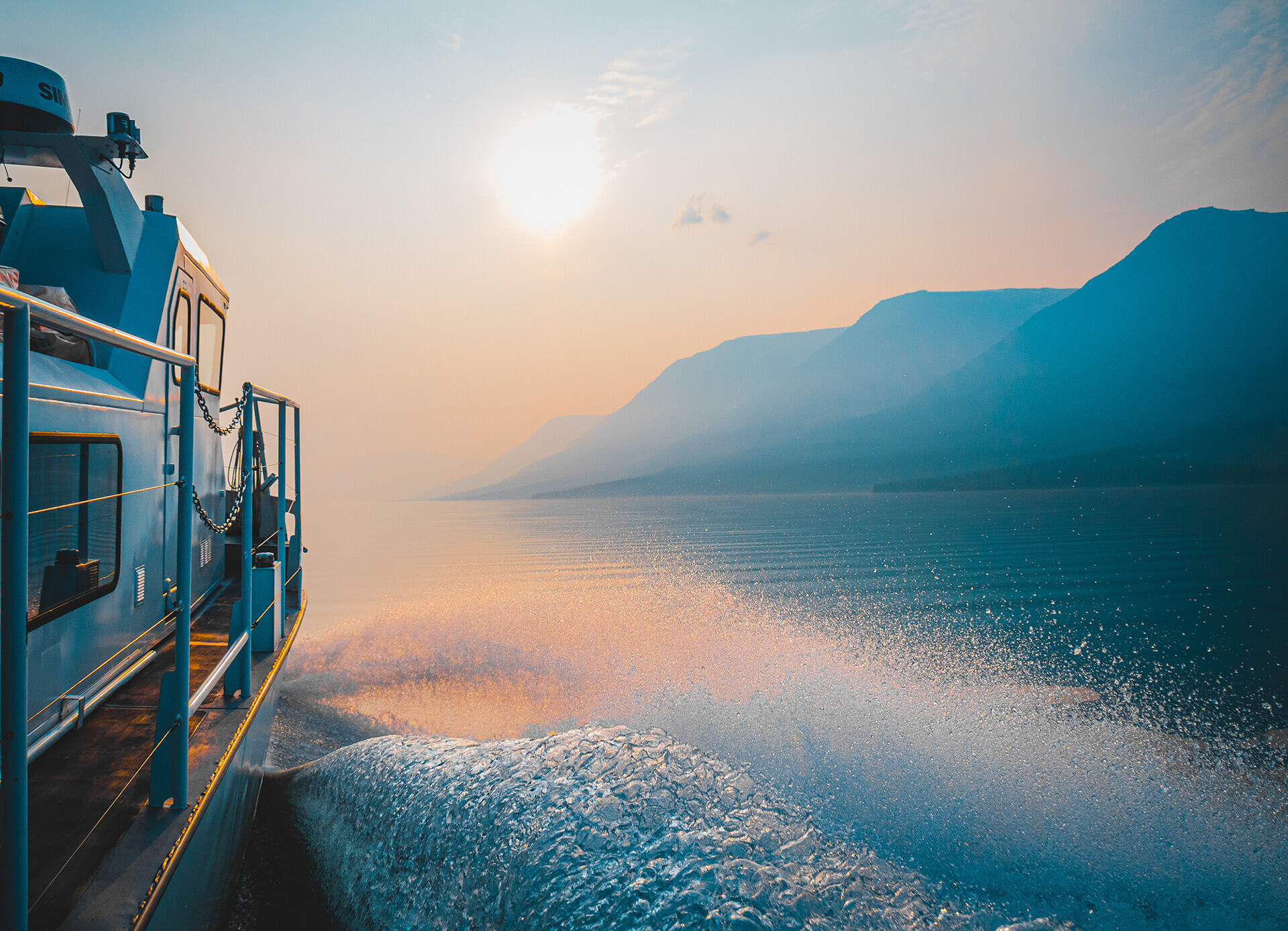
This is a giant mountain range above the Arctic Circle with fantastic landscapes. Its area is about 250,000 square kilometers, which is comparable to the size of Great Britain.
The Putorana Plateau is a mountain range without peaks, which are cut by waterfalls and deep canyons. There is a huge number of places where no man has ever set foot.
The geographical center of Russia - Lake Vivi - is on the plateau, which is covered with ice most of the year. It is the largest freshwater lake in this region (its total length is 90 km), the inhabitants even call it the “local Baikal”.
One of the deepest lakes in the country - Lama - was only discovered in the early 20th century. It has a depth of more than 200 meters.
Approximately 19,000 square kilometers are occupied by the Putorana Nature Reserve, where rare species of animals (such as bighorn sheep and wild reindeer) and unique landscapes are protected.
Dear readers,
Our website and social media accounts are under threat of being restricted or banned, due to the current circumstances. So, to keep up with our latest content, simply do the following:
If using any of Russia Beyond's content, partly or in full, always provide an active hyperlink to the original material.
Subscribe
to our newsletter!
Get the week's best stories straight to your inbox